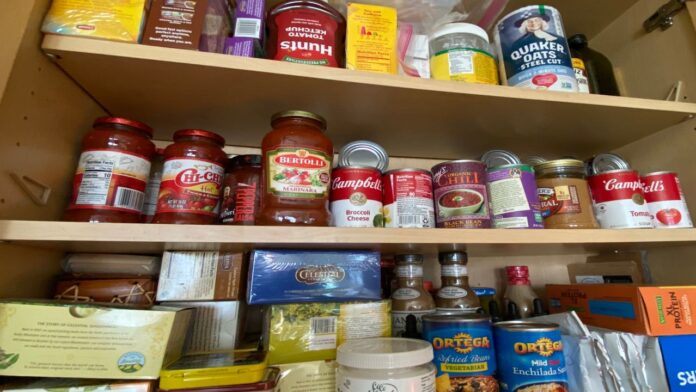FLORIDA — Millions of SNAP recipients across the country are seeing a change in the amount of their benefits with the end of Emergency Supplemental Nutrition Assistance Program (SNAP) allotments.
What You Need To Know
- A new report outlines the barriers of equal access to Florida’s SNAP benefit program
- SNAP benefits were reduced for over 1.7 million Florida households
- Florida did not participate in the food stamp program until 1969, five years after the program’s inception at the federal level
Under the Families First Coronavirus Response Act of 2020, states issued emergency funding that some believe are ending too soon.
Florida was one of the first states to reduce the funding when its emergency declaration expired.
Despite the successes of the program, a new report by the Florida Policy Institute outlines the barriers of equal access.
Katrina Hayes is a single mother who just moved into her first home last year after being homeless. Since then she says her SNAP benefits were reduced.
“I used to get like $421, now I’m getting $120,” she said. She’s feeling the impact of high inflation.
Christine Long is the Chief Programs Officer at Metropolitan Ministries, which has a community food bank and garden.
“We have a variety of canned soups and different kinds of vegetables,” she said, but added that their resources are being stretched.
“Folks from a wider variety of income levels really need this support. Flexibility and continuing to expand rather than reduce. We really need the government to help us with more expansion,” said Long.
According to the Florida Policy Institute, since Florida’s Pandemic Emergency Declaration expired, SNAP benefits were reduced for over 1.7 million Florida households.
“When that happened we lost the ability to provide this additional food assistance to families with low income who are struggling, and as a result the loss to the state has been enormous,” said Florida Policy Institute Senior Policy Analyst & Attorney Cindy Huddleston.
Huddleston highlights the successes and missteps of SNAP throughout its history in Florida in a new report. Florida did not participate in the food stamp program until 1969, five years after the program’s inception at the federal level. Even after the state legislature authorized the food stamp program for interested counties, the Florida Policy Institute says that red tape, delays and discriminatory practices were among the roadblocks in initially getting the program off the ground.
“I think we’re doing a pretty good job,” said Huddleston. “There is still a lot of policy that is based on stereotypes that keep everyone out regardless of their race or ethnicity.”
Huddleston says that includes work requirements, which can be a challenge for those who struggle to maintain employment. She said that many college students aren’t eligible and felons are banned from the benefit.
“The impact they have is leaving out people who are doing their best to find jobs or have some type of challenge or disability that is not necessarily recognized and they are unable to work,” said Huddleston. “There are policies that keep out people who have served their time for drug trafficking for example, those folks can never ever get food assistance in the state of Florida. There is still a lot of work to be done to educate lawmakers and people in the community about why these policies are not necessarily in the best interest, not only for the individual but also for the state as a whole. If you make sure that people are fed, people are going to be more successful, children are going to be better educated in school, they will make better grades, their long-and-short-term health outcomes are better. So, it’s really to everyone’s benefit to make sure the program reaches as many people as it possibly can.”
The report claims the most significant shortfall is the amount allotted to households.
“The benefits you get with SNAP don’t last a whole month for most families. They are really inadequate to allow people to be able to put healthy food on the table.”
That is something Hayes says she is concerned about as her son grows older.
“I’m spending more money on food, so in other areas, I don’t have money like I used to have it,” she said.














